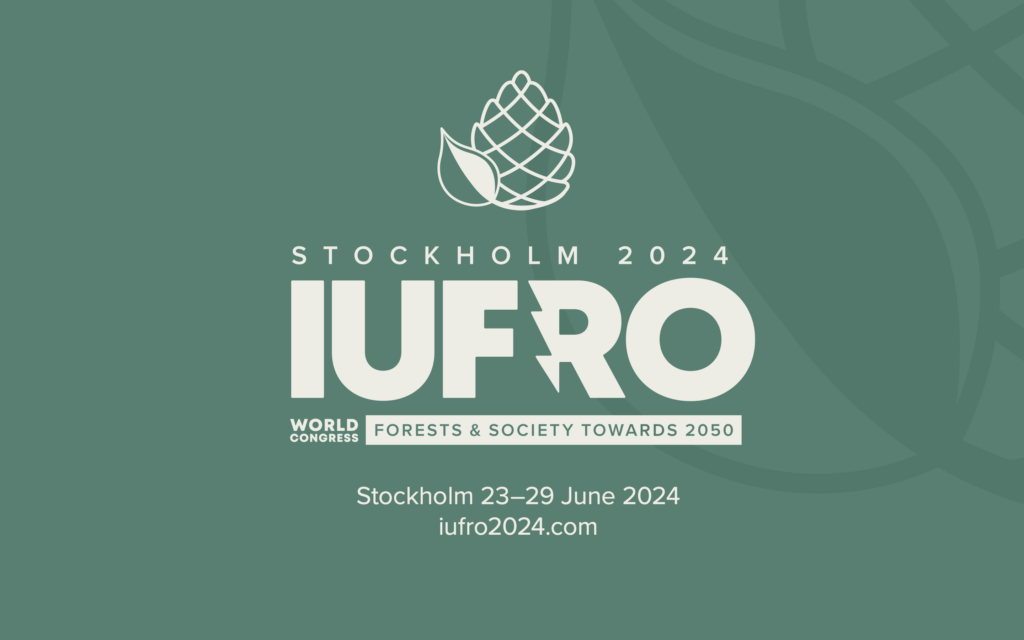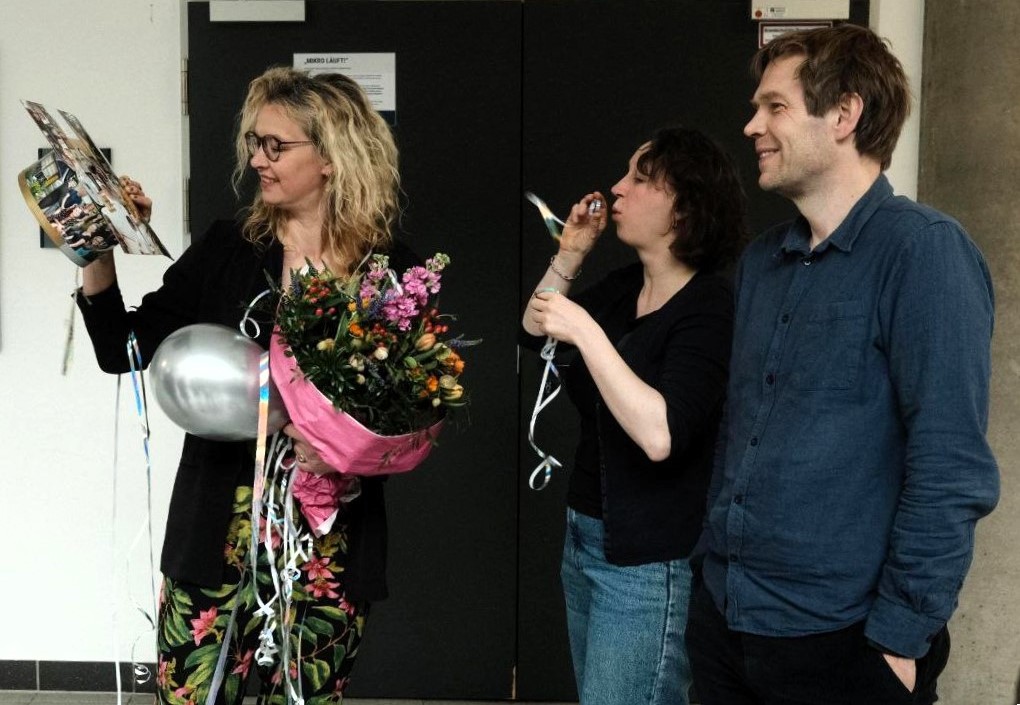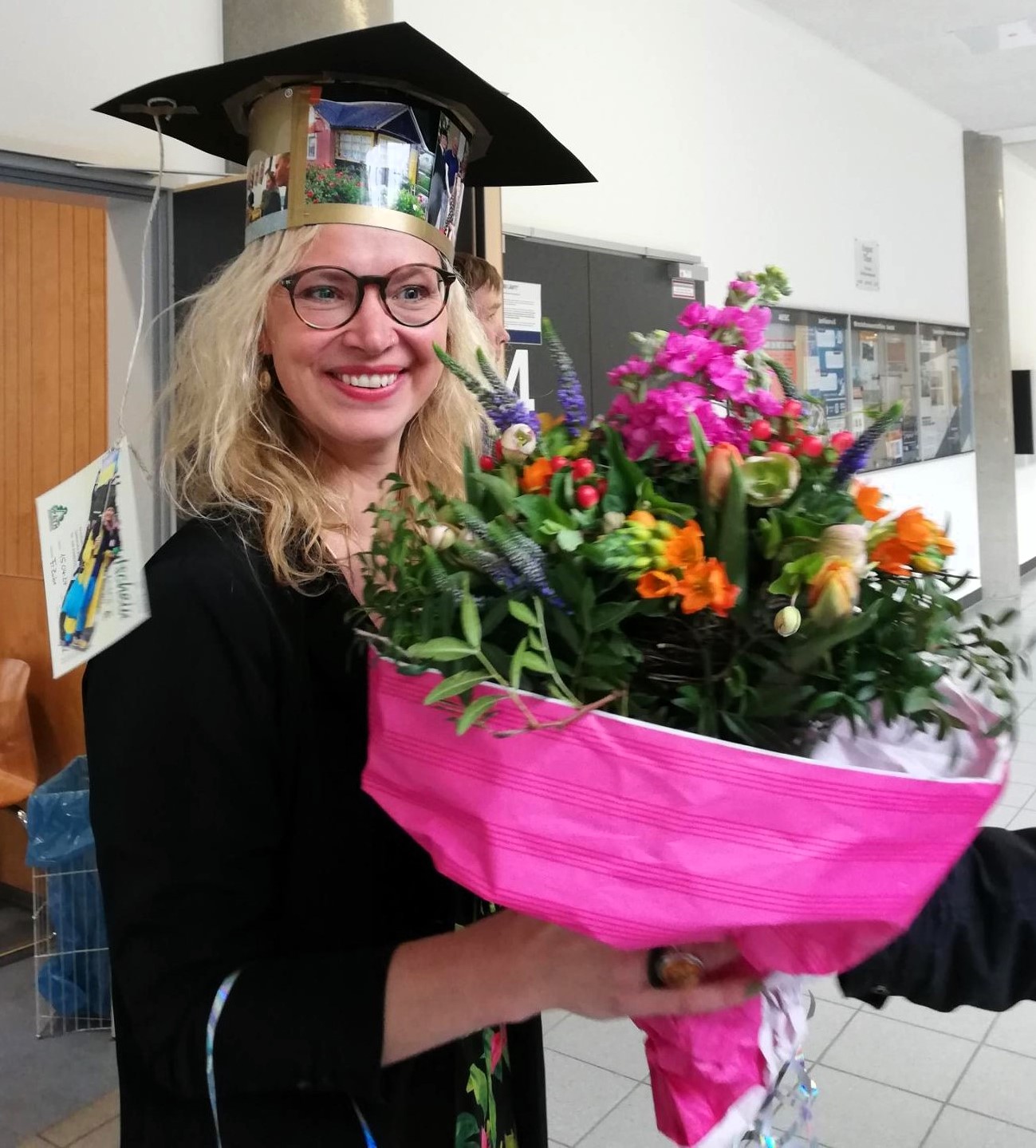Bei der zweiten Online-Veranstaltung der von flumen und Kolleg:innen organisierten Reihe des Netzwerks Soziologische Waldforschung hält Anna Brietzke vom Institut für sozial-ökologische Forschung (ISOE) am 15. Mai 2024 von 17:00 bis 19:00 Uhr den Beitrag „Wo ist der Wald in deinen Daten?“ – Multispecies-Perspektiven und Forschungspraxis.
Abstract
In meinem Promotionsprojekt nehme ich Konfliktdynamiken um „den Wald der Zukunft“ mit einem besonderen Fokus auf Zukunftsimaginationen und (Un)sicherheiten aus sozial- und kulturanthropologischer Perspektive in den Blick. Ausgehend von einer Multispecies-Perspektive betrachte ich dabei auch, inwiefern nicht-menschliche Wirkende (z.B. Tiere, Pflanzen, Pilze) und ihre Netzwerke in das Waldökosystem, in die Aushandlungen und in das Machen von Zukünften eingeflochten sind.
Multispecies-Perspektiven erfahren in verschiedenen geistes-, kultur- und sozialwissenschaftlichen Disziplinen ein immer größer werdendes Interesse. Ausgangspunkt von Multispecies-Forschungen ist die Erkenntnis, dass die Welt nicht allein von Menschen gestaltet wird. Sie nehmen stattdessen die Verflochtenheit von Organismen, ihre Abhängigkeiten und Wirkungen in den Blick. Doch wie kann – über eine vielfach beschriebene Perspektive hinaus – eine Forschungspraxis aussehen, die nicht-menschliche Wirkende auch in der empirischen Forschung ernst nimmt?
In diesem Vortrag möchte ich von meinen Erfahrungen mit verschiedenen Methoden berichten, mit denen ich versuche, Multispecies-Perspektiven in meiner Forschungspraxis präsent zu machen. Ich plädiere dabei auch dafür, unter nicht-menschlichen Wirkenden nicht nur lebende Organismen (wie z.B. Birken, Rehe, Flechten) zu fassen, sondern auch jene Wirkende einzubeziehen, die keine Lebewesen sind (z.B. Waldbrände, Kohlenstoff, Weisergatter, Forsteinrichtungen, Waldzeichen, Licht und Schatten). Der Vortrag soll den Austausch darüber eröffnen, wie „der Wald“ und einzelne seiner unzähligen Elemente beim Daten erheben, Schreiben und vielleicht auch darüber hinaus sichtbar werden können.
***
Online-Veranstaltungsreihe des Netzwerks Soziologische Waldforschung
Die Anfang 2024 ins Leben gerufene Online-Veranstaltungsreihe des Netzwerks Soziologische Waldforschung lädt alle interessierten Personen aus Wissenschaft und Praxis ein, Beiträge zur soziologischen, sozialwissenschaftlichen und kulturwissenschaftlichen Waldforschung im deutschsprachigen Raum zu diskutieren und gemeinsam weiterzuentwickeln.
In dieser Veranstaltungsreihe wollen wir uns im Anschluss an ca. 30-minütige Vorträge von Netzwerkmitgliedern und Gastredner:innen Zeit für die ausführliche Diskussion untereinander nehmen, die im wissenschaftlichen Alltag oft zu kurz kommt. Wir wollen einen entspannten, kollegialen Raum eröffnen, in dem Forschungsergebnisse vorgestellt werden können und der vornehmlich dem intensiven Austausch von an ähnlichen Themen und Fragen forschenden Personen dient. Nicht zuletzt wollen wir das Netzwerk lebendig halten und uns die Zeit bis zum nächsten Offline-Treffen verkürzen!
Die Idee zu dieser Online-Veranstaltungsreihe ist auf dem ersten soziologischen Waldsymposium am 1. Dezember 2023 an der Friedrich-Schiller-Universität Jena entstanden. Die Veranstaltungsreihe soll dazu dienen, die dort begonnenen Debatten fortzusetzen und die geknüpften Kontakte zu intensivieren.
Die Veranstaltungsreihe ist immer folgendermaßen aufgebaut: Die Veranstaltung ist auf zwei Stunden am Abend angesetzt (z.B. 17-19 Uhr). Zu Beginn gibt es einen inhaltlichen Input von ca. 30 Minuten, dieser wird anschließend gemeinsam diskutiert. In der letzten halben Stunde schließt sich an den inhaltlichen Austausch die Möglichkeit an, Fragen und Anregungen hinsichtlich des Ende 2023 neu gegründeten informellen Netzwerks Soziologische Waldforschung miteinander zu besprechen.
Wir planen momentan, alle 2-3 Monate eine Veranstaltung auszurichten.
Dafür sind wir auf die Unterstützung von euch allen angewiesen!
Hosts and guest speakers wanted!
Um die Verantwortung auf möglichst vielen Schultern zu verteilen und möglichst vielen Personen zu ermöglichen, ihre inhaltlichen Perspektiven einzubringen, soll jede Online-Veranstaltung von anderen Personen organisiert und verantwortet werden. Es gibt Vorlagen für Save the Date/Einladungen und Hinweise für die Moderation und Organisation auf Sociohub im Space “Sozial- u. kulturwissenschaftl. Waldforschung”. Bei Fragen zu der Veranstaltungsreihe oder Interesse, die nächste Veranstaltung auszurichten oder darin vorzutragen, schreibt entweder im Sociohub Space oder wendet euch per Email an jana.holz@uni-jena.de oder an mich (manuel.john@forst.bwl.de).








